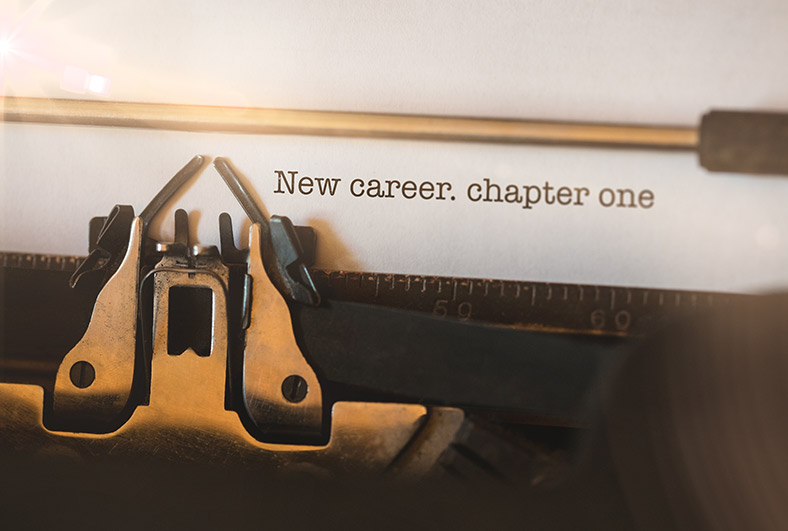Blog / Experts / Journalists
Transferrable skills for breaking into journalism as a second career

Not a recent graduate with an NCTJ qualification? As shared by the speakers at the latest Journo Resources event, it’s still possible to break into the journalism industry. Minreet Kaur, Lauren Medlicott and Richard Hansen shared practical advice for ‘Breaking Into Journalism At All Stages: Entering The Industry When You’re Not a Recent Grad’.
Not sure if your own career skills are transferrable to journalism? Read on for how marketing, teaching and even opera singing can lead to success in newsrooms, getting freelance commissions and training future journalists…
Former marketeer turned journalist, presenter and reporter Minreet Kaur
‘I originally tried journalism 20 years ago but it was very difficult as a woman of colour to break in back then. I needed to have a career in something, and I chose marketing. One Christmas, around three years ago, I felt really fed up with my career. I reached out to the BBC through the online Contact Us page to say the Sikh community wasn’t being well covered or represented, and they got back to me in the New Year – I was brought in for two weeks of work experience. I thought ‘this is really what I want to do and I’m just going to go for it’. That was 2018 – that was the start for me.
‘There are definitely transferrable skills from marketing. You need to sell your story; the editor needs to know why it would resonate with people. Being able to talk to people, sell my ideas, too. I did feel I was starting from scratch, but one thing about this industry is that it’s different for everyone. You have to learn your own way. Journalism is a big beast; it’s done in many different ways.’
‘If you’ve got an idea, and you’ve got access to that story, no one can take that from you – commissioners are looking for good ideas, and everyone is interested in a good human interest story.’
Trained teacher turned freelance journalist Lauren Medlicott
‘I’m originally from the States, but I’m now in Wales with three little boys. I’d trained as a teacher in the US, but couldn’t transfer my qualifications over and ended up with a career working with domestic abuse victims. I’ve only been in journalism for a year now, alongside my work supply teaching in schools and helping victims of modern slavery.
‘Getting into journalism was out of pure curiosity. I think people just told me I was good at it? I love human justice stories and making people aware of things they may not have heard about before, so I signed up for a pitching webinar, learned what a pitch was, sent one to The Independent and it got accepted.
‘Supply teaching has many skills that can transfer to journalism – you have to relate with staff, you’re helping kids with figuring things out, breaking things down – it’s kind of what you’re doing while you’re writing. And my work with vulnerable people has helped with approaching charities and NGOs to find case studies – they’re not keen to speak to journalists sometimes, but I’ve worked in trauma care, my interviews are trauma-informed and I write about human rights issues.
‘In general, if you’ve worked in any professional environment, it will transfer over to working in the media – you need time management because of deadlines, pitches and edits. It’s a universal skill.’
Former opera singer turned journalist and News Associates journalism tutor Richard Hansen
‘I’d moved to the UK from New Zealand to study opera and, by some odd twist of fate, I decided to change career – I was away from home, and my kids, maybe 300 days a year as a freelance opera singer. So I did my NCTJ, worked for some local news outlets, and now I’m a tutor at News Associates.
‘I enjoyed the performing arts industry, but there was so much uncertainty. I found myself following politics closely – I’d studied politics at university – and was fairly active on social media. It just clicked one day, that maybe I should do this instead. I looked at courses as a first step and I found the part-time News Associates course. I began pitching ideas to different outlets and making contacts and got myself a job as a staff reporter.
‘The performative aspect of journalism is where skills from my previous work helped. Especially in local news – more and more are using video and Facebook Lives to increase engagement. If you can be engaging in front of a camera, I think it will help. And the hustle of it – working in the performing arts, I was used to having multiple jobs, juggling kids and a mortgage.
‘A lot of our students say “I’m not experienced enough to write about that’’ – but it is all about the idea. You can get a front-page splash for The Times if it’s a good idea. If you pitch somebody with something good, they’re not going to turn around and ask if you got a C or B in Media Law. You just have to trust your ideas and your ability to talk to people. One commission will lead to another.’
Find information about future Journo Resources events here and follow panellists from this event on Twitter @minkaur5, @LaurenMedlicott and @richardhansen86.
Want help with finishing off your own commissions and features? Try the Journalist Enquiry Service – it’s free for journalists.
%20-%20ResponseSource&_biz_n=0&rnd=647637&cdn_o=a&_biz_z=1744082366216)


